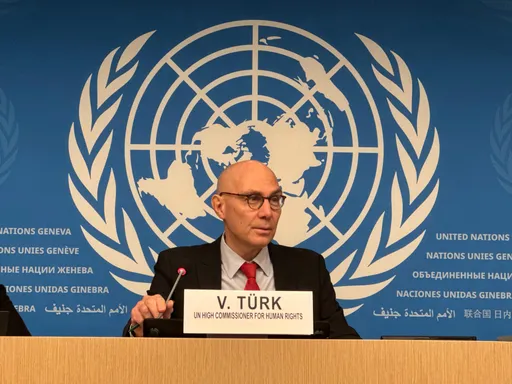After the US invasion of Iraq, Iran took advantage of the shifting geopolitics of the Middle East and established a so-called ‘Shia Crescent’ stretching from Tehran to Beirut. While the threat it poses towards Israel and Gulf states are acknowledged by many, it also poses a threat to Turkey, tilting the centuries-old balance between both nations in favour of Iran.
Turkey has tried to fight back and supported anti-Iran forces in Syria and elsewhere. However, with the war in Syria calming down, Ankara is now taking the competition to the next level by encircling Iran with its allies; Turkey is changing the modus operandi from confronting Iranian expansionism to encircling it.
Confronting Iran
Turkey’s military involvement in Syria has empowered the legitimate Syrian opposition and torpedoed both Iranian ambitions for a massacre in Idlib and a military solution to the conflict.
In Lebanon, Turkey enjoys significant support among its Sunni population and is appealing to the entire country through economic and cultural means and by flexing its soft power, helping to balance Hezbollah and Iran.
In Iraq, however, the situation is far more advantageous for Iran. American policies have made Iran and its militias kingmakers. Ankara has been stepping up its relations with the Iraqi Central Government and the Kurdish Regional Government, and actively supporting them to sideline militias and strengthen democratic politics.
Turkey has also become the second-biggest import partner to Iraq. However, Ankara has a limited role in internal military dynamics. For its part, Iran is shielding the PKK in the north of the country to keep Turkey at bay.
Encircling Iran
There is little room to manoeuvre now that the wars in Syria and Iraq are drawing down. Normally, this would mean the preservation of the status quo. However, sensing a weakness in Iran, Turkey has employed a new strategy — not directly motivated by the goal of encircling Iran — but rather achieving this as a pleasing byproduct.
The Nagorno-Karabakh clashes in 2020 marked the beginning of a change in Turkish politics vis-a-vis Iran. With Azerbaijan’s victory, Baku both reclaimed its territory and advanced along the Iranian-Azerbaijani border. At that time, Turks in Iran cheered for their ethnic brothers in Azerbaijan, a cause for concern in Tehran.
Turkey has also stepped up its role in Azerbaijan and bilateral relations have expanded to reach a historic high. Turkish drones hovering just across Iran's northern border symbolise Turkey’s growing presence in the neighbourhood.
To the northeast of Iran, Ankara is strengthening its relations with the Turkic states in Central Asia through the Turkic Council, which has become an important platform to increase cooperation between Turkic states. Moreover, Turkmenistan, Iran’s immediate neighbour, is the second-biggest recipient of Turkish arms exports.
Ankara’s excellent relations with Pakistan and increasing economic, political and security cooperation between the two Sunni states is of historic significance for Tehran. Some historians even argue that the Turkish Safawid dynasty’s desire to differentiate the population from the two Turkish and Sunni empires to the east and west motivated the "Shiafication“ of Iran.
Turkey’s central role in the Kabul airport in Afghanistan together with Pakistan and Hungary will facilitate Turkish-Pakistani relations and give Turkey leverage over Iran’s turbulent neighbour, as it will influence the refugee flow towards Iran. Afghan refugees trying to reach Europe cross through Iran, and Tehran has employed many Shia Hazara Afghans to fight in Syria.
To the south of Iran, Turkey’s military presence in Qatar contributes to the encirclement of Iran — even though it’s not the aim. From the Iranian perspective, having a permanent Turkish military presence in the Gulf is something it has to consider. Despite the presence of the base, the southern axis remains the weakest area of Turkish encirclement but recent developments indicate that this is going to change.
The recent efforts for rapprochement between Turkey, Saudi Arabia and Egypt will ultimately affect Iran as well. The former will limit Iran and strengthen the encirclement, while he latter may affect Palestinian politics as well as the internal politics of Lebanon.
Finally, if Israel shows a readiness to compromise and collaborates with Turkey, the encirclement will be complete.
With the election of a new Iranian president and potential for a new US-Iran nuclear deal, the Turkish encirclement of Iran may prove critical in containing Iran.























